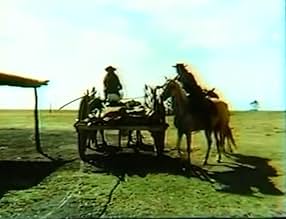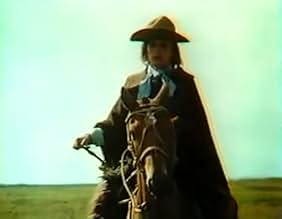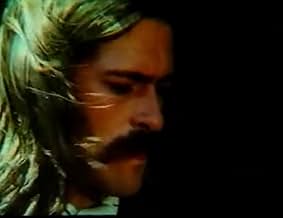The film follows the parallel lives of two brothers of Danish ancestry in the "Pampas" of the Brazilian-Argentine-Uruguayan rural area. The rough life these "gauchos" (South American cowboys... Read allThe film follows the parallel lives of two brothers of Danish ancestry in the "Pampas" of the Brazilian-Argentine-Uruguayan rural area. The rough life these "gauchos" (South American cowboys) lead means they must share all aspects of their lives. Suddenly, enter "A Intrusa" (the ... Read allThe film follows the parallel lives of two brothers of Danish ancestry in the "Pampas" of the Brazilian-Argentine-Uruguayan rural area. The rough life these "gauchos" (South American cowboys) lead means they must share all aspects of their lives. Suddenly, enter "A Intrusa" (the Intruder). How is this new element in their lives to be shared?
- Awards
- 4 wins & 1 nomination
Storyline
Did you know
- TriviaMaria Zilda Bethlem's debut.
- GoofsThe biblical quote that appears halfway in the movie is wrongly attributed as being from the book of 2 Kings. It actually appears on 2 Samuel.
- Crazy creditsThe film's title, cast and crew are presented nearly 18 minutes into the film. The title appears exactly when the title character is shown.
- ConnectionsReferenced in The Past (2007)
- SoundtracksMilonga de João Iberra
Written by Jorge Luis Borges and Mário Barbará Dorneless
Based on a short story by legendary Jorge Luis Borges, it's the story of two men of different polar opposites who are deeply connected with each other, either as gaucho ranchers, living in the south of Brazil in the late 1800's, but also as loving partners living under the same roof. And they happen to be brothers. The Nielsen brothers are formed by the bossy, rough mannered Cristiano (José de Abreu) and the sensitive Eduardo (Arlindo Barreto) and it's no secret to us in the audience that there's more going on than brotherly love - yet it's done in almost subtle ways as evidenced by a knife fight they have without their pants on, a sort of tribute to the naked fight between Alan Bates and Oliver Reed in "Women in Love". It's never expressed through words, but always through action, intention and a captioned biblical quote related with David and Jonathan's love for each other.
The catalyst of events arrives in the form of a young woman (Maria Zilda Bethlem) that Cristiano brings home and warns Eduardo that she'll be his wife. Yet he's also allowed to intimate with her too. She's pretty, doesn't talk much, does her chores in the farm and each brother has their own approach to her, with Cristiano satisfied through sex while Eduardo goes through a more romantic nature that appeals to the girl. But we ain't talking about love, we're dealing with practical and physical needs, after all she's an intruder in their lives and doomed they're about to be after defending the girl's honor when another group of ranchers mocks about her, bringing violence and tragedy along the way.
Here's a deeply absorbing feeling about the nature of men when it comes to feelings, of things that are done and felt but never said. And love is such a powerful force of nature with those characters that there's never a sense of shame or regret about the incestuous relationship (neither for the girl, being the highlight when all three get together in bed, completely losing themselves in total bliss). Yet happiness can never last, and it's up to each person of this relationship to decide what they want from each other.
It's a very rewarding dramatic picture with some thrills and violent moments, which makes of the film a unique kind of western, removed from some cliches.
Great acting by José de Abreu as the brute rancher, unforgettable all the way, just as his co-star Arlindo Barreto, a couple of years before becoming well-known as a performer of Bozo the clown, on TV. Maria Zilda isn't given much to do but it's a script problem, not hers, and it's a pity because it feels there's something missing about this title character who's brought into those men's lives, doesn't have a word on anything and the only thing you can sense about her true feelings are shown in some interactions with Eduardo.
Mr. Christensen was one of the rare few directors back in the Brazilian cinema of the 1970's to deal with LGBT characters with all of its variations of characters, social backgrounds and morality as well. From the poetic allegory of "O Menino e o Vento" to the thrillers "Estranho Triângulo" and "A Morte Transparente", he gave voice and representation to that community in a time when little was displayed in cinema. "A Intrusa" must be added to that list of works, and his very best of the bunch as it's the most daring, most unconventional and most artistic as well. But it's a lot more than sexuality, it's about humanity and how people connect with each other through such humanity that seems erratic, chaotic, unloving and uncaring at times. 9/10.
- Rodrigo_Amaro
- Aug 2, 2024
- Permalink
Details
- Runtime1 hour 40 minutes
- Color
Contribute to this page











